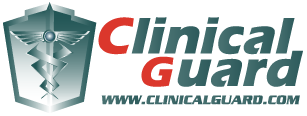Preventive measures to avoid pandemics
If you catch the flu, you may not be able to tell whether you have 2009 H1N1 or the seasonal variety. Since they both make you sick with the same symptoms including fever*, cough, runny or stuffy nose, body aches, headache, chills, fatigue, diarrhea and vomiting.
Now we have Tamiflu and Relenza on the market for treatment in the flu season. The first-mentioned drug ------ Tamiflu, will be most effective in the first 48 hours of illness just working against symptoms of the new H1N1, but seasonal flu is resistant to it. As for the second drug ------- Relenza is effective against both seasonal and the new H1N1 flu, but not for young children.
Here are some preventive measures that you can navigate the winter and fall ahead:
- Wash your hands and keep your hands clean can stop viruses that are living and breeding around you from causing infection.
- Avoid touching your nose, your mouth and your eyes since they are exposed in the air and can pick up the virus more easily.
- Block sneezes and coughs with your sleeve or a tissue, wash your hands afterwards and throw away your used tissues immediately.
- Make sick people stay at home and limit contact with others since they are becoming hubs for spreading flu.
- In addition to getting the children vaccinated against both seasonal and H1N1 flu, parents should teach their kids basic hygiene habits. If the kid gets sick, keep him home for 24 hours after the fever* breaks on its own, without the help of medication.
- In around mid-October, the following people will be first in line to get vaccinated including pregnant women, health-care workers, everyone from 6 months to 24 years’ old, those in households with babies 6 months old or younger and people ages 25 to 64 with conditions like asthma.
- For health-care workers in contact with people who are ill, it is suggested that they maintain a distance of 6 feet from the patients. In cases where closer care is required, they may consider using a respirator mask that filters out viruses circulating in the air.
- For students in schools, it is recommended that sick students to stay in separate rooms wearing masks until they go home to recuperate.
- Try to use separate bathroom that is cleaned daily with disinfectant if possible.
* Clinical Guard Provides non-contact thermometers to help you monitor your flu symptoms.

